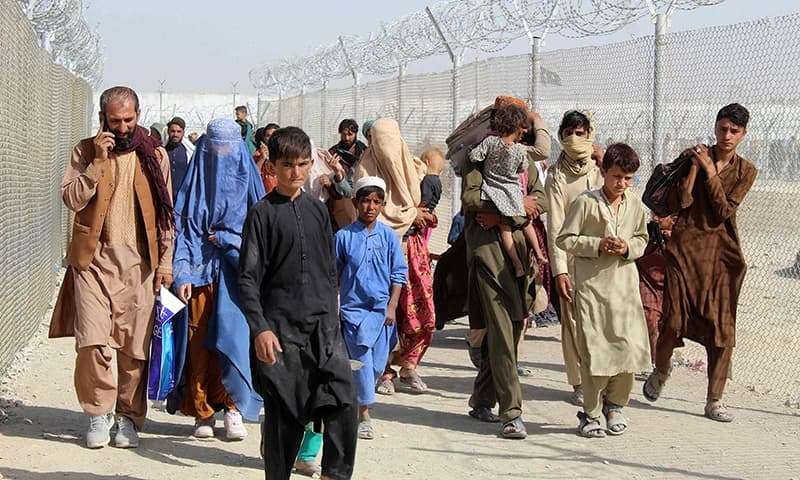A Compassionate and Comprehensive Approach to Addressing the Afghan Refugee Crisis in Pakistan
Introduction:
The mission of evicting 3 million Afghan refugees from Pakistan is not only logistically challenging but also morally and legally problematic. Instead of hasty eviction plans, a more humane and sustainable approach should prioritize the rights and well-being of these vulnerable individuals. Pakistan, in collaboration with the international community, should focus on addressing the root causes of displacement and working towards a just and lasting solution for Afghan refugees.
The Complex Dynamics of the Afghan Refugee Crisis:
The recent turmoil in Afghanistan following the Taliban’s takeover in 2021 has triggered a massive influx of Afghan refugees into neighboring Pakistan. According to a report by the United Nations Refugee Agency (EUAA) released in May 2022, approximately 3 million Afghan nationals currently reside in Pakistan. Evicting such a significant number of people is not a straightforward task, primarily due to international laws and the complex dynamics surrounding their presence in Pakistan.
Legal Status of Afghan Refugees:
The UNHCR report highlights the varying legal statuses of Afghan refugees in Pakistan. Among the 3 million Afghans, 1.4 million possess ‘POR’ cards (Proof of Registration), indicating that they have some form of legal documentation. There are also 8.5 million Afghan citizens with an Afghan Citizen Card (ACC). However, approximately 775,000 Afghan refugees lack any documentary evidence of their identity or refugee status.
This heterogeneity in legal status further complicates any potential repatriation efforts. Efforts to address this situation require a detailed and comprehensive plan that respects the rights and safety of Afghan refugees.
Humanitarian Assistance and a Lasting Solution:
Rather than rushing to evict them, a more humane approach would be to focus on providing humanitarian assistance, including shelter, food, healthcare, and education, while working towards a lasting solution for their future. It’s essential to recognize that the majority of the Afghan refugees who have sought shelter in Pakistan since the Taliban’s resurgence are individuals who oppose the Taliban regime.https://thebalochistanupdates.com/the-influx-of-afghan-refugee/
Complexities of Repatriation:
These individuals have fled their homeland in fear of persecution or violence, making their repatriation even more complex. Sending them back to a hostile environment where their lives may be at risk is both morally unacceptable and against international legal norms. Pakistan, like all nations, is bound by international laws and conventions that protect the rights of refugees and asylum-seekers.
The principle of non-refoulement, enshrined in the 1951 Refugee Convention, prohibits the forced return of refugees to a country where they face persecution or serious harm. Given the precarious situation in Afghanistan under the Taliban’s rule, forcibly sending back 3 million Afghan refugees would not only violate international law but also pose significant ethical concerns.
International Cooperation and a Multilateral Approach:
Pakistan should work closely with international organizations, neighboring countries, and the global community to find a collective solution to the Afghan refugee crisis. A multilateral approach will ensure that the burden is shared, and resources are pooled to meet the refugees’ needs. Any repatriation efforts must be voluntary and conducted in a safe and dignified manner.
International organizations like the UNHCR should oversee the process to ensure the refugees’ safety and well-being. Encouraging the integration of Afghan refugees into Pakistani society through education and employment opportunities can foster social cohesion and reduce the burden on host communities.
Legal Pathways for Integration and Resettlement:
For those with proper documentation, Pakistan can explore legal pathways for their integration or resettlement in third countries willing to accept Afghan refugees. This would require diplomatic efforts and cooperation with countries willing to offer refuge.
Conclusion:
In conclusion, the Afghan refugee crisis in Pakistan demands a compassionate and comprehensive approach that respects the rights and well-being of the affected individuals. Hasty eviction plans are not only logistically challenging but also morally and legally problematic. A focus on humanitarian assistance, a lasting solution, and international cooperation will pave the way for a just resolution to the crisis, adhering to both ethical standards and legal norms.https://thebalochistanupdates.com/afghan-refugee-demographic-challenge/
FAQs
Q: What is the current number of Afghan refugees in Pakistan, and why did they seek shelter in the country?
A: As of the latest available data from May 2022, approximately 3 million Afghan refugees reside in Pakistan. Many fled Afghanistan following the Taliban’s takeover in 2021, seeking refuge in Pakistan due to fears of persecution, violence, and instability.
Q: What legal documentation do Afghan refugees in Pakistan possess, and how does it impact their status?
A: The legal status of Afghan refugees in Pakistan varies. About 1.4 million have ‘POR’ cards (Proof of Registration), indicating some form of legal documentation. Additionally, 8.5 million possess an Afghan Citizen Card (ACC), while approximately 775,000 lack any documentary evidence of their identity or refugee status. These legal distinctions complicate repatriation efforts.
Q: Why is repatriating Afghan refugees from Pakistan considered logistically challenging and morally unacceptable?
A: Repatriation is challenging due to the sheer number of refugees, varying legal statuses, and the complex dynamics of the situation. Morally, sending individuals back to a potentially hostile environment where their lives may be at risk contradicts international legal norms, particularly the principle of non-refoulement, which prohibits the forced return of refugees to perilous conditions.
Q: How can the international community contribute to addressing the Afghan refugee crisis in Pakistan?
A: The international community can contribute by providing financial support, resources, and expertise to assist in meeting the humanitarian needs of Afghan refugees in Pakistan. Collaborative efforts, diplomatic engagement, and adherence to international laws and conventions, especially by neighboring countries, can contribute to a comprehensive and just solution.
Q: What steps can Pakistan take to address the crisis and ensure the well-being of Afghan refugees?
A: Pakistan can focus on a humane approach, providing humanitarian assistance such as shelter, food, healthcare, and education. Collaborating with international organizations, neighboring countries, and the global community is crucial. Ensuring voluntary and safe repatriation, exploring legal pathways for integration, and promoting social cohesion through education and employment opportunities are key steps for a sustainable solution.


